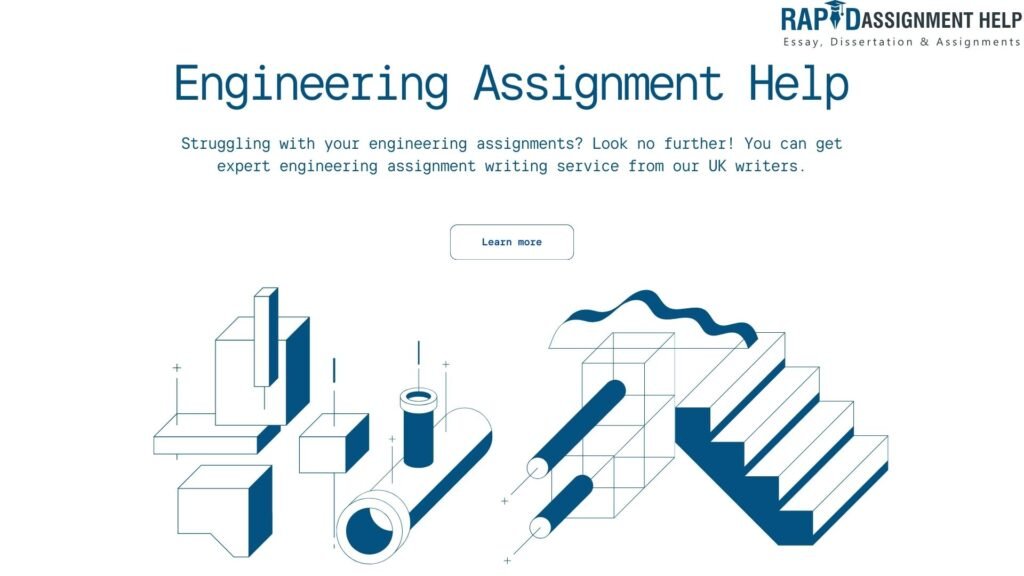Engineering is one of the most respected and rewarding fields in the academic world—but it’s also one of the most demanding. From long hours in the lab to complex mathematical modelling, technical drawings, and group design projects, engineering students often find themselves working harder than most.
But while the workload may be intense, the rewards are equally high. Engineers build the future—literally. Whether you’re dreaming of designing renewable energy systems, creating smarter transport networks, or building more sustainable cities, your academic journey plays a crucial role in shaping your impact.
In this article, we’ll break down what makes engineering such a tough subject—and share practical ways to manage the challenges, stay motivated, and succeed without burning out.
🔧 The Pressure of Precision
Engineering isn’t just about getting the job done—it’s about getting it right. Unlike many other academic subjects, there’s little room for ambiguity. One miscalculation in a structural load formula or circuit design could lead to major real-world consequences.
That’s why accuracy and attention to detail are hammered home from the very first year. Whether you’re working on a thermodynamics problem or analysing stress in a beam, your lecturers expect you to approach each task with precision and discipline.
This pressure can feel overwhelming—but it also teaches you something vital: how to think like an engineer. Logical reasoning, structured analysis, and problem-solving become second nature, preparing you for the high standards of the industry.
🧠 Balancing Theory and Practice
One of the biggest challenges for engineering students is balancing intense theory with practical application. Lectures cover advanced concepts in mathematics, physics, and computer science—but assignments and labs expect you to apply those theories in meaningful ways.
Here’s how you can bridge that gap:
-
Stay ahead of readings. Engineering textbooks are dense. Breaking them into daily chunks helps.
-
Rewatch lecture recordings. They’re goldmines for clearing up confusion.
-
Form study groups. Collaborative problem-solving often makes tricky topics click faster.
-
Practice over perfection. The more you solve, the more you understand. Don’t wait for the “perfect moment” to start an assignment.
⌛ Time Management in a 24-Hour World
Let’s face it: engineering coursework doesn’t leave much time for anything else. Between deadlines, labs, team projects, and revision, you’re expected to do a week’s worth of work in 3 days. Many students also juggle part-time jobs or commuting challenges on top of it all.
Here are a few student-approved strategies to reclaim your time:
-
Use project timelines. Gantt charts aren’t just for engineers—they work wonders for study planning.
-
Prioritise by impact. Tackle tasks that are worth the most marks or require the most effort first.
-
Build “buffer time.” Allow extra hours in your schedule for things that might take longer than expected.
Remember, engineering isn’t a sprint—it’s a marathon. Burnout won’t help you finish strong.
💬 Communication Skills Matter Too
Believe it or not, engineers aren’t just problem solvers—they’re also communicators. You’ll be writing lab reports, preparing presentations, and justifying design choices regularly.
If you struggle with report writing or academic English, now’s the time to work on it. Clear communication is essential for collaborating with other professionals, securing funding, or explaining technical solutions to non-experts in the real world.
One way to improve is to review model reports or past assignments provided by your lecturers. Another is to seek out writing support, especially if English isn’t your first language.
🧪 Embrace the Labs, Love the Mistakes
Labs are often students’ favourite part of engineering—but they can also be the most intimidating. Equipment malfunctions, incomplete data, or confusing instructions can make experiments stressful.
But here’s the truth: mistakes are part of the learning process. In fact, many great engineering innovations came from trial and error. Don’t be afraid to get things wrong—instead, focus on what you’re learning and how you’re improving.
💡 Where to Turn When You’re Stuck
No matter how brilliant you are, there will be moments where you hit a wall. Whether it’s a concept you can’t wrap your head around or an assignment that feels impossible, don’t isolate yourself.
Here’s what to do:
-
Talk to your tutors or demonstrators. They’re there to support your learning.
-
Attend office hours. Even a 10-minute chat can offer clarity.
-
Use campus support centres. Many UK universities have math and writing hubs specifically for STEM students.
-
And when deadlines are tight, platforms offering Engineering Assignment Help can be a safety net—especially when you need quick guidance or model solutions.
🛠️ Building a Career Alongside Your Degree
Don’t wait until final year to think about your career. Start now:
-
Join engineering societies. They often have networking events, company visits, and hackathons.
-
Build a portfolio. Document your design work, prototypes, or CAD models.
-
Look for internships early. Experience matters, and even unpaid summer placements can be valuable.
-
Stay updated. Read industry blogs, follow engineering YouTubers, or subscribe to news from the IET or ICE.
Your future employers want problem-solvers who are proactive, creative, and always learning.
🌟 Final Thoughts: You’re Building More Than Just Bridges
Engineering is challenging, no doubt. But it’s also one of the most fulfilling and future-proof careers out there. As you work through difficult modules, sleepless nights, and frustrating group projects, remind yourself: you’re not just earning a degree—you’re building a foundation for innovation.
Keep pushing forward, stay curious, and never stop learning. The world needs more engineers like you












































